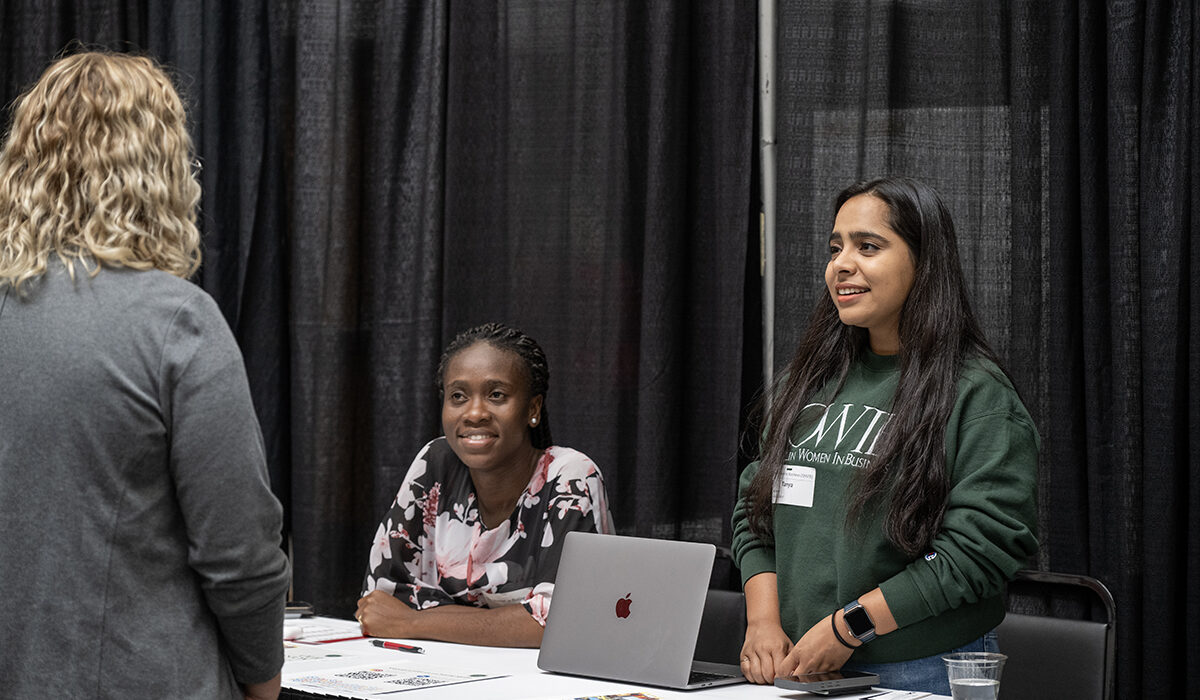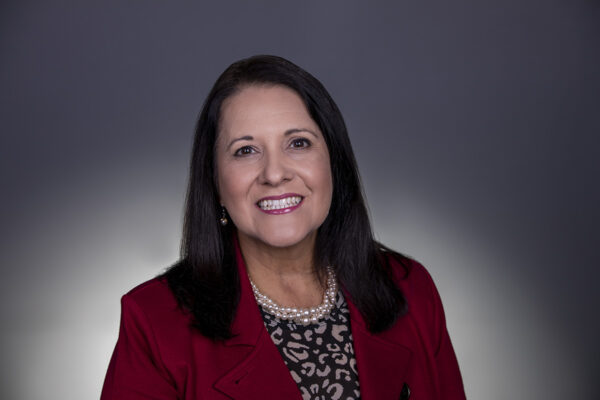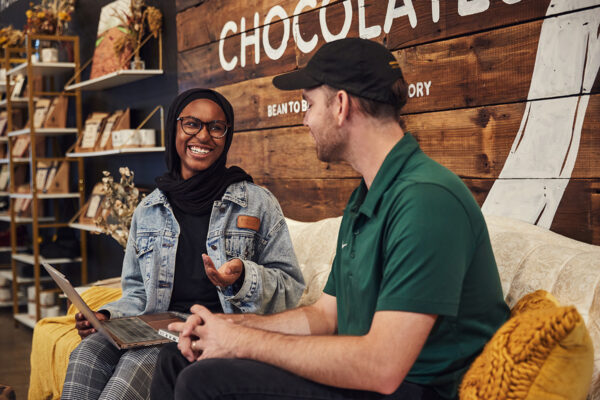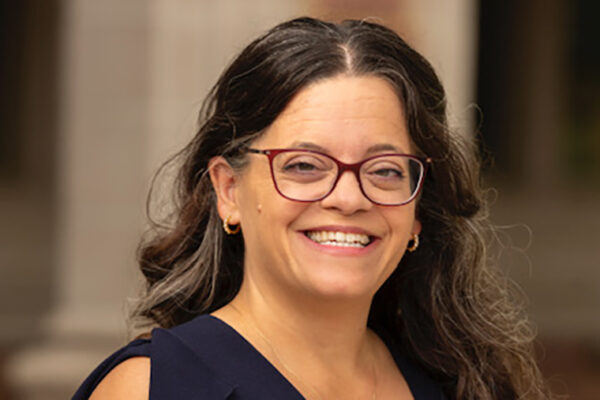As an analyst for Anheuser-Busch, Valeria Taglioni has attended her share of job fairs. The experience is as predictable as it is necessary: Students, resumes in hand, move from table to table to pitch their credentials; employers, bearing brochures and schwag, pitch their employee experience.
“Traditional career fairs serve a purpose, but they can get very repetitive — you’re having a lot of the same conversations with a lot of students,” said Taglioni, who graduated from Olin Business School in 2022.
So Taglioni was intrigued when the WashU Center for Career Engagement invited A-B to its inaugural Reverse Career Fair, held Sept. 26 at the Athletic Complex. This time, she was the one who traveled from table to table, where she met the leaders of 30 student groups. Participants ranged from the Society of Women Engineers to Carnaval to WashU Out in STEM to WUTV.
“This has been a very different experience,” said Taglioni, after leaving her contact information with the co-presidents of Engineering Test Kitchen. “This is a unique way for students to stand out and have a moment to show us what they are truly passionate about. We get to hear about the real experiences that they are having and the real projects that they are working on. Employers are always trying to find ways to connect to student organizations, and this was a great way for me to learn about these student groups and hear how we can support their members, whether that be by speaking on a panel or participating in events about early career opportunities.”
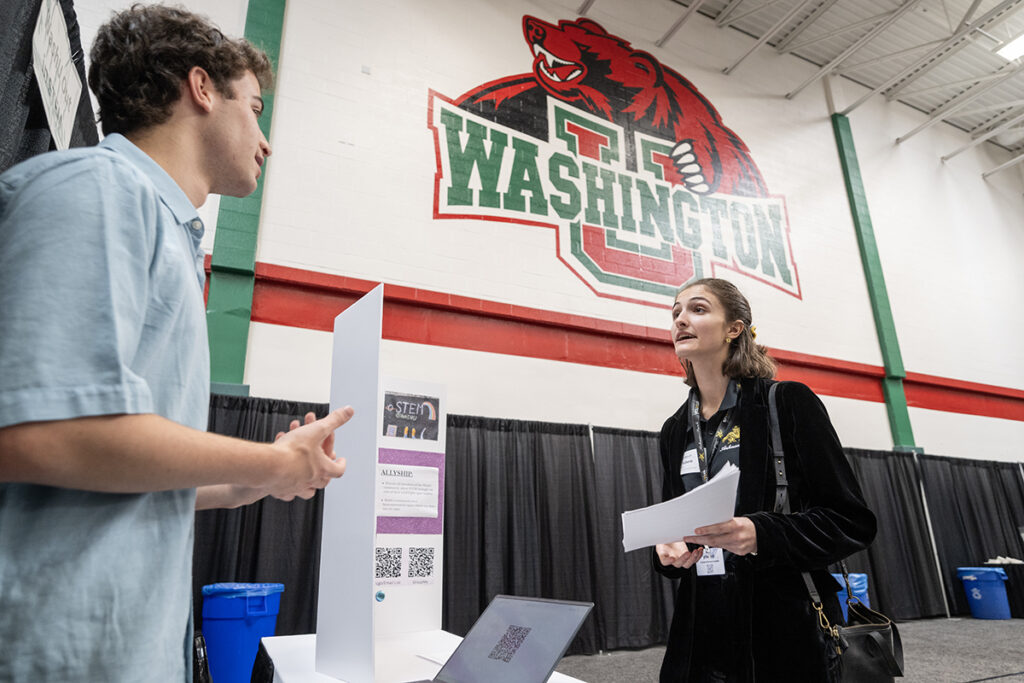
Norma Guerra Gaier, associate vice chancellor for career development and education, said today’s career educators are looking for innovative ways to connect employers to students with the right skills, not necessarily specific majors. Since Gaier’s arrival a year ago, she has fully launched the center’s career communities program; developed new partnerships with academic divisions; and moved to a unified career-engagement model. She said employers are looking for students who can lead, communicate effectively, work collaboratively and think critically — career competencies that students develop in the organizations they serve as well as in the classroom.
“Our big two-day Career Expo has 129 employers with more than 2,000 students in attendance. It’s very busy and bustling,” Gaier said. “This event allowed our students to showcase their competencies more genuinely and clearly to employers. And it gave our employers a more comprehensive snapshot of the talent on our campus.”
Meanwhile, over at the WashU Chess Club table, Wilson Gao, a McKelvey School of Engineering junior, and Alec Beck, an Olin Business School sophomore, set up a chess board. Gao said the club’s more than 100 members represent different schools, but all are exceptional critical thinkers.
“Our goal here is to connect employers to our large and diverse group,” Gao said. “If you’re looking for someone who knows how to calculate risk and solve problems, a chess player is a good place to start.”
Adam Elberg, of health care private equity firm 3 Boomerang Capital, stopped by the WashU Poker Club for the same reason. He told members about his business and encouraged them to send their resumes.
“I Iike to play poker, and I find that poker players are very good mathematically and know how to think through probability,” Elberg, who earned his degree in physical therapy from WashU Medicine. “It’s been helpful to see students in this different context.”
All student groups, including pre-professional, social and affinity clubs, were invited to join the Reverse Career Fair. Gaier hopes to increase the number of participating employers and student groups by 30% next year.
Ryan Tyler, co-president of Engineering Test Kitchen, plans to return.
“At Engineering Test Kitchen, big companies and small student startups pitch us their problems, and then we come up with solutions,” said Tyler, who was joined by co-president Chiby Onyador. Both are McKelvey Engineering students. “And so this event is great for us because it connects us to companies for potential projects. And for us as individuals, it’s a great opportunity to network and talk about work that we are very passionate about.”
